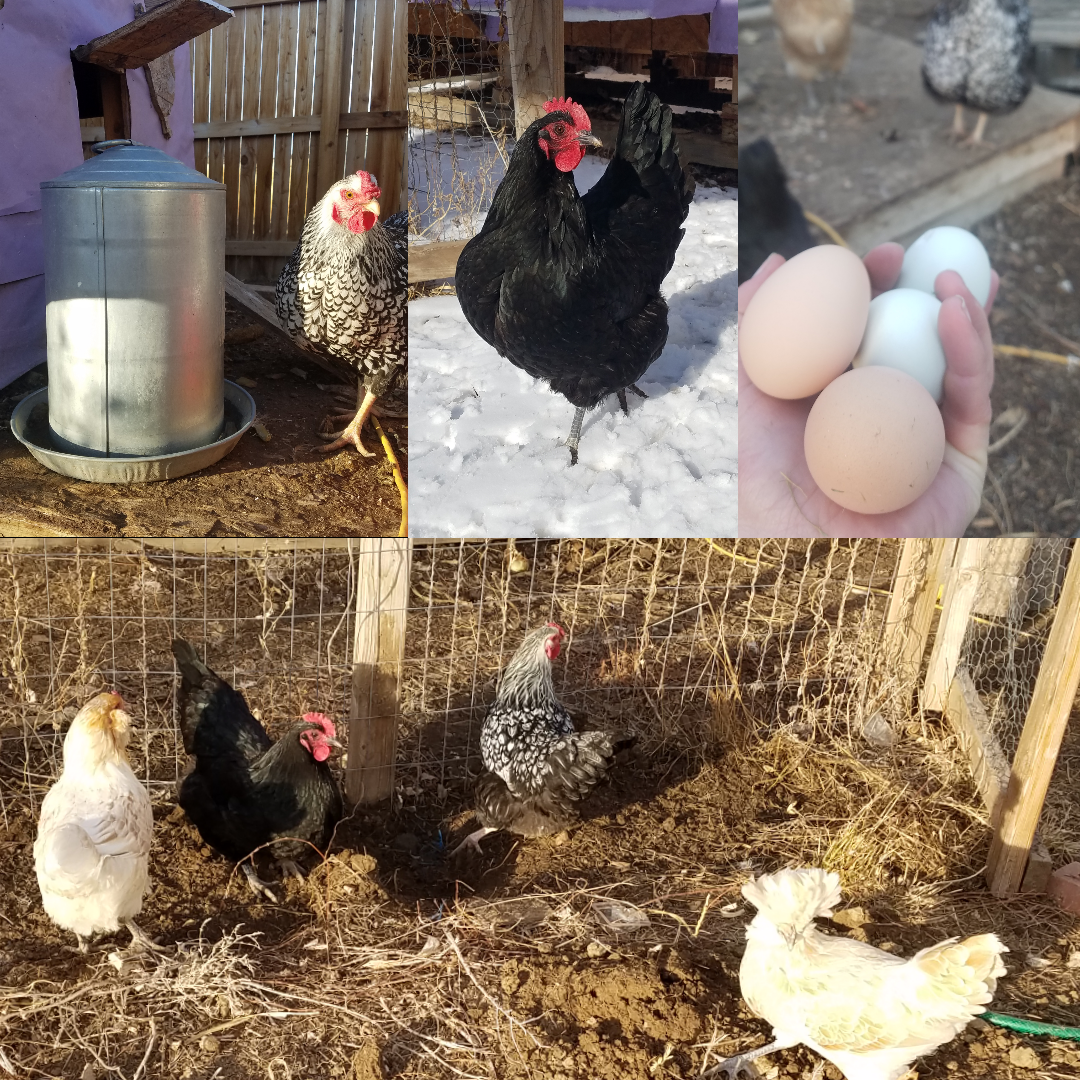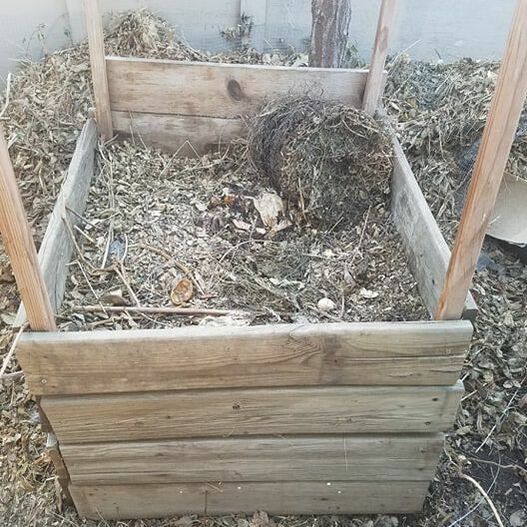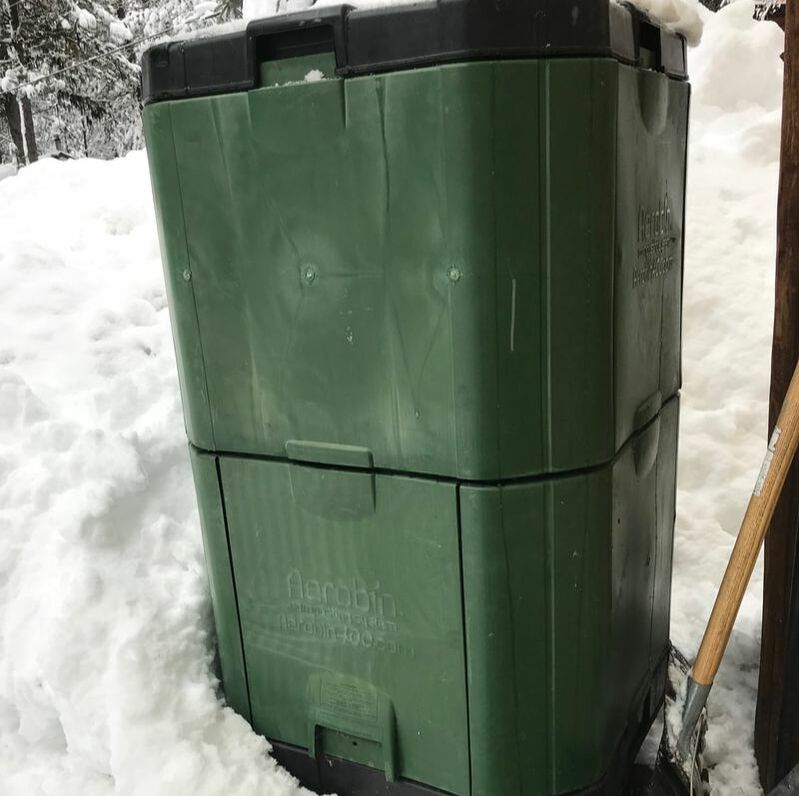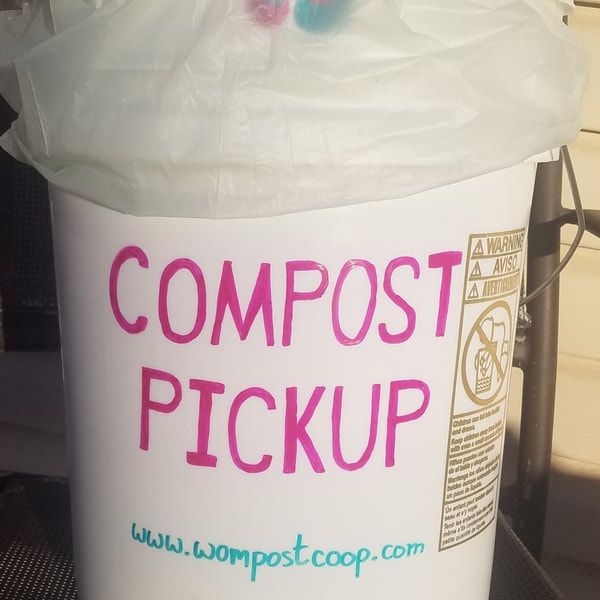|
For weeks I've been out knocking doors for Wompost, Aurora's new curbside compost pickup. I have knocked on 500 doors, where about 100 people have answered. One in three speaks Spanish (this is what I love about my neighborhood, by the way).
I've been "conversationally fluent" for 12 years now, after living abroad in Santiago, Chile as a Rotary foreign exchange student (great program, but that's another blog post). I don't usually struggle expressing myself. This one had me stumped. How do I explain curbside compost pickup in Spanish?! The problem, I think, lies with English. We use the same word to describe the mix the kitchen scraps and weeds as we put into the pile, the action of composting, and the finished black gold we put into our gardens! I bet in most languages, these words are completely different. My first attempt went something like this Nosotros recogemos la basura del jardin y de la cocina que se puede proccessar al abono. We pick up the trash from the garden and the kitchen which can be processed into fertilizer. QUE? Then I would follow up with examples, knowing I'd already lost them. Today, I met an awesome guy from Mexico City who figured it out with me. He said he was a high school teacher of many things: social studies, science, and Spanish. Perfect! He explained composta is the word for compost. It's just not commonly used. Ready for the wording he gifted me? Recolección de residuos biodegradables. O, recolección de residuos para composta. So. Much. Better. Do you have a suggestion for how I can better explain Wompost in Spanish?
5 Comments
I used to feel so guilty throwing away trash. Meat soaked Styrofoam mixed in with old sneakers? Gross! There is a better way. Instead of sending biodegradable waste to the landfill, you could turn some of it to compost! How do you compost? There are many methods. #1 Keep Chickens In the City of Aurora, you can keep up to 6 chickens! No roosters, please and thank you. I think the best kind of pets pay rent (in eggs). You will need a coop, heat lamp in the winter, and protection from raccoons and hawks. What will chickens eat? All produce except for citrus, onions, garlic, and corn cobs. They will not eat your coffee grounds, tea bags, cardboard, pizza boxes, meat bones, or rotten food. #2 DIy Backyard pile One of the easiest methods is the backyard pile. It helps to have it contained by wood, pallets, fences. You can compost cardboard, fire ash, coffee grounds, tea, and most vegetables. Don't put meat or eggshells in your backyard compost if you don't want pests. Your small pile will not get hot enough to kill any potential pathogens in pet waste or weeds - leave them out. I wouldn't recommend adding citrus, fruit pits, or avocado skins because they will take forever to compost. The most important thing for success with your own compost pile is to add a lot of carbon (browns). I use all my autumn leaves from my quarter acre yard, and all my neighbor's leaves, too. You should have 20 times as much carbon as nitrogen (greens). Nitrogen rich things are your kitchen scraps, grass clippings, and chicken droppings. Chop up your kitchen waste to speed things up. Just imagine how long it would take a worm to work through a whole onion versus a quartered onion. A lot longer! Bonus tips: Your pile will compost faster if it is aerated and moist. Add water when you notice it drying, or cooling down. Turn it every other month if you are very ambitious. Add PVC pipes with holes drilled through the pile to get more air moving in. You can also add 2-3 inch long wood chips to vary the particle size and increase airflow. These are free near Aurora! There is a big pile where you can help yourself on the corner of Smith and Havana. It is run by Denver Forestry, and they are very nice and helpful. #3 Fancy Compost Bin There are a LOT of products out there to help you compost. Tumblers, aerated plastic bins, and worm bins to name a few. These make aeration easier, or turning easier. However, you still need a good ration of carbon to nitrogen. Save up those leaves or shredded paper! The same rules apply for what you can't compost in your backyard. Unless you are hitting 150 degrees for a week or longer, you cannot compost any meat, pet waste, weeds, or potentially dangerous food. My Mom had a problem with voles. They loved to eat her flower roots. She was trying to decide the humane thing to do when nature helped her out. A garden snake made a cozy home under the warm compost bin! The voles moved out. #4 Compost drop off There may be a site near you where you can drop off your compost for free! In the Denver Metro area, you can go to the Cherry Creek disposal site with your compostables. You can also drop off with Scraps, an awesome peddle powered compost pickup in downtown Denver. Check with the managers of the site for what you can compost. Pro tip: store your compostables in the freezer until you bring it to drop off. That way it won't start to decompose or smell in your house, car, or backpack on the bus (I've done that. Other passengers were not pleased). #5 Curbside Compost Pickup Many cities offer compost pickup in Colorado and across the country. Check your city's website for instructions. In Aurora, Wompost is the first compost pickup program! We pickup weekly for just $15/month. What can you put in your bin? Lots of stuff. Any food item: spoiled leftovers, fish, bones, citrus peels, pits, fruits, vegetables, coffee grounds, tea bags, and eggshells are all good. You can also compost cardboard and paper products that you can't recycle. Spill something on your newspaper? Compost it. Greasy pizza box? Compost it. You can also compost your weeds, pet hair, and small branches. What's forbidden? You can't put any trash in, or any poop (sorry dog people).
Want to start curbside compost pickup? See if you live in the Wompost service area! |
Carolyn
Hey there! I'm the CEO and founder of Wompost. Wompost stands for Woman Owned Composting, and we make composting simple. Archives
March 2024
Categories |
Proudly powered by Weebly





 RSS Feed
RSS Feed